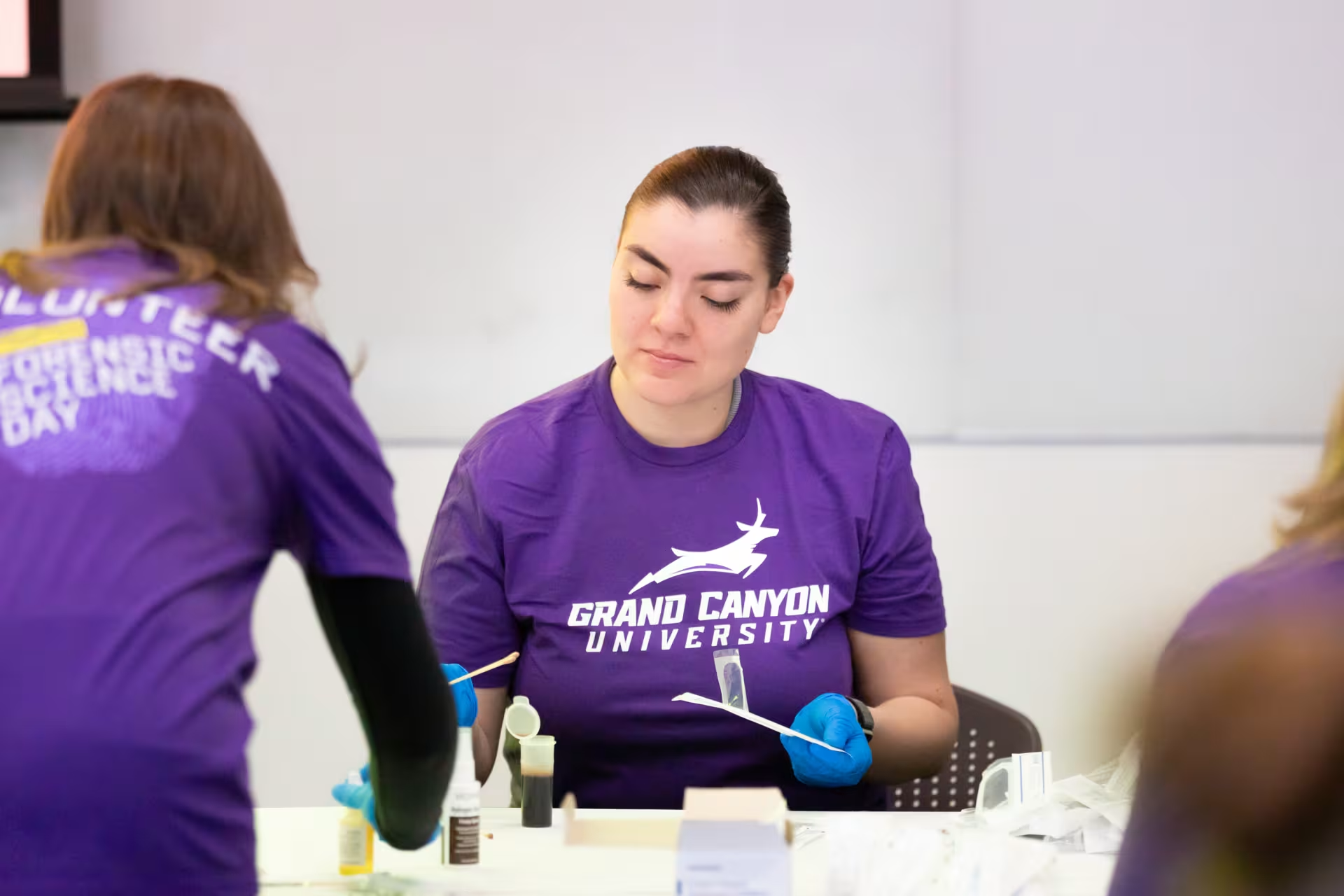


Online: $600 per credit [More Info]
Up to 12 credits or 1/3 of the total program requirements in transfer (whichever is less)
Credits: Fill out the Lopes Eval to find out what will transfer
Admission Requirements (Master's)
OR 2.5+ Unweighted GPA and
Admission requirements may differ based on degree level, program and modality, or transfer status. Some programs of study may require a higher GPA and/or other qualifying criteria for admission. Please review full admission and program requirements in the University Policy Handbook.
* Degree must be from an accredited college or program that has been approved by GCU.
** Combined verbal/quantitative, after August 2011 (1,000 combined verbal and quantitative, prior to August 2011).
The master’s degree in forensic science from Grand Canyon University caters to individuals who want to deepen their understanding of forensic science, including crime scene processing and laboratory techniques used in forensic and medicolegal fields.

The online MS in Forensic Science allows students to work toward their career goals through curriculum that focuses on both practical skills and ethical forensic education. The program explores advanced topics in criminalistics, forensic ethics and courtroom evidence while also examining complex legal procedures from a Christian worldview.

Earning your master’s in forensic science online offers you the convenience and flexibility to complete your coursework while balancing personal and professional commitments.

To be admitted to GCU’s forensic science master’s program, applicants must hold a bachelor’s degree in forensic science or a related field, or a bachelor's degree in any field, along with completed coursework in chemistry, organic chemistry and advanced biology. For more information about program admission, please fill out the form on this page to connect with a university counselor.
During the forensic science master’s program, you will have the opportunity to enhance your understanding of investigative techniques and develop practical skills for analyzing physical, biological and chemical evidence. Through a combination of online coursework and lab-based education, you will explore topics such as forensic biology, forensic chemistry and evidence preservation, which can prepare you for careers in forensic and criminal justice environments.
Students in the MS in Forensic Science program will study an array of forensic science competencies, including:
Microscopic analysis of hairs, fibers and cells
Integrity and ethical principles in forensic science
Effective courtroom testimony
Laboratory quality management
Chain of custody and authoring forensic reports
Applied forensic statistical analysis
Forensic toxicology
Impression evidence comparison
Serology, DNA and controlled substance analysis
Instrumental analysis including microscopy and spectroscopy
GCU is institutionally accredited by the Higher Learning Commission. The College of Natural Sciences upholds this standard by offering programs grounded in academic quality, ethical principles, and a curriculum aligned with industry-relevant practices.
Deciding to pursue a master’s degree in forensic science online is the first step toward enhancing your knowledge and skills. To assist you in making this decision, we have addressed some frequently asked questions about the degree and field.
Is a master’s in forensic science worth it?
Is a master’s in forensic science hard?
What jobs can you get with a MS in Forensic Science degree?
Is it hard to find a job after graduating with an MS in Forensic Science?
While a bachelor’s degree is typically the minimum requirement for roles in forensic science, earning a master’s degree in forensic science can equip individuals with the expertise that may be needed for specialized roles in the field.(See disclaimer 1) Career opportunities vary based on location, industry demand and qualifications. Additionally, some positions may require additional undergraduate coursework to fulfill specific lab or accreditation standards.
Graduates may explore various career paths in settings such as:(See disclaimer 2)
Estimated job growth for forensic science technicians expected from 2023 to 2033(See disclaimer 3)

Earn your MS in Forensic Science online to strengthen your qualifications and build valuable skills to contribute to the forensic science field.